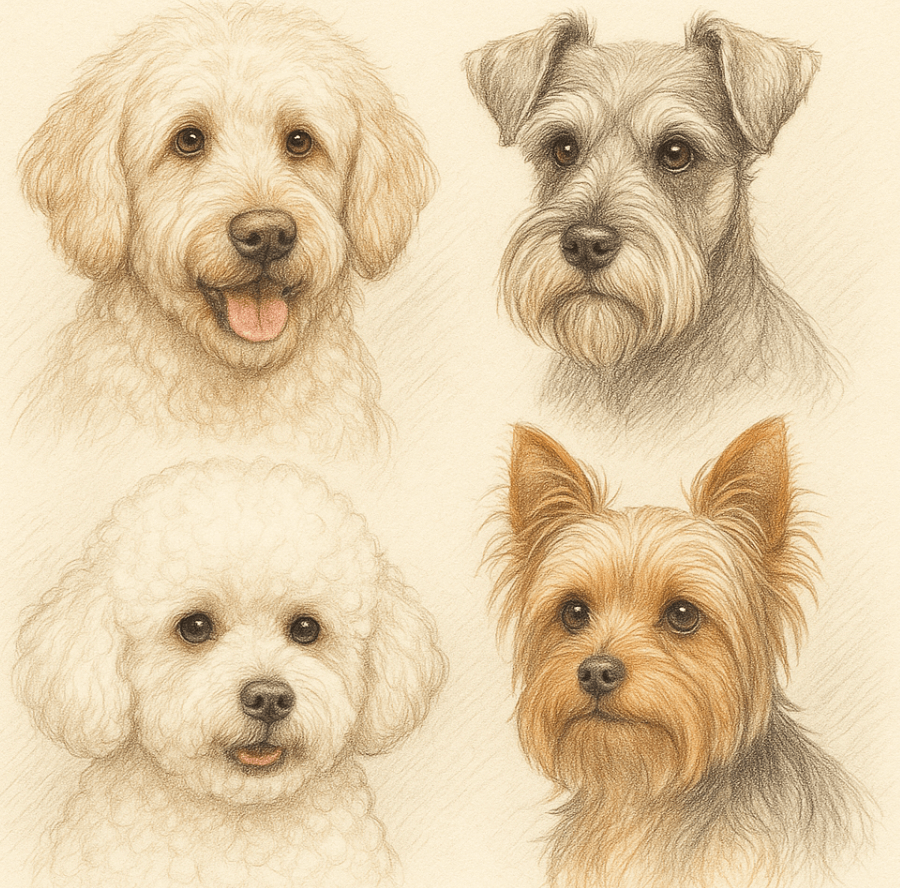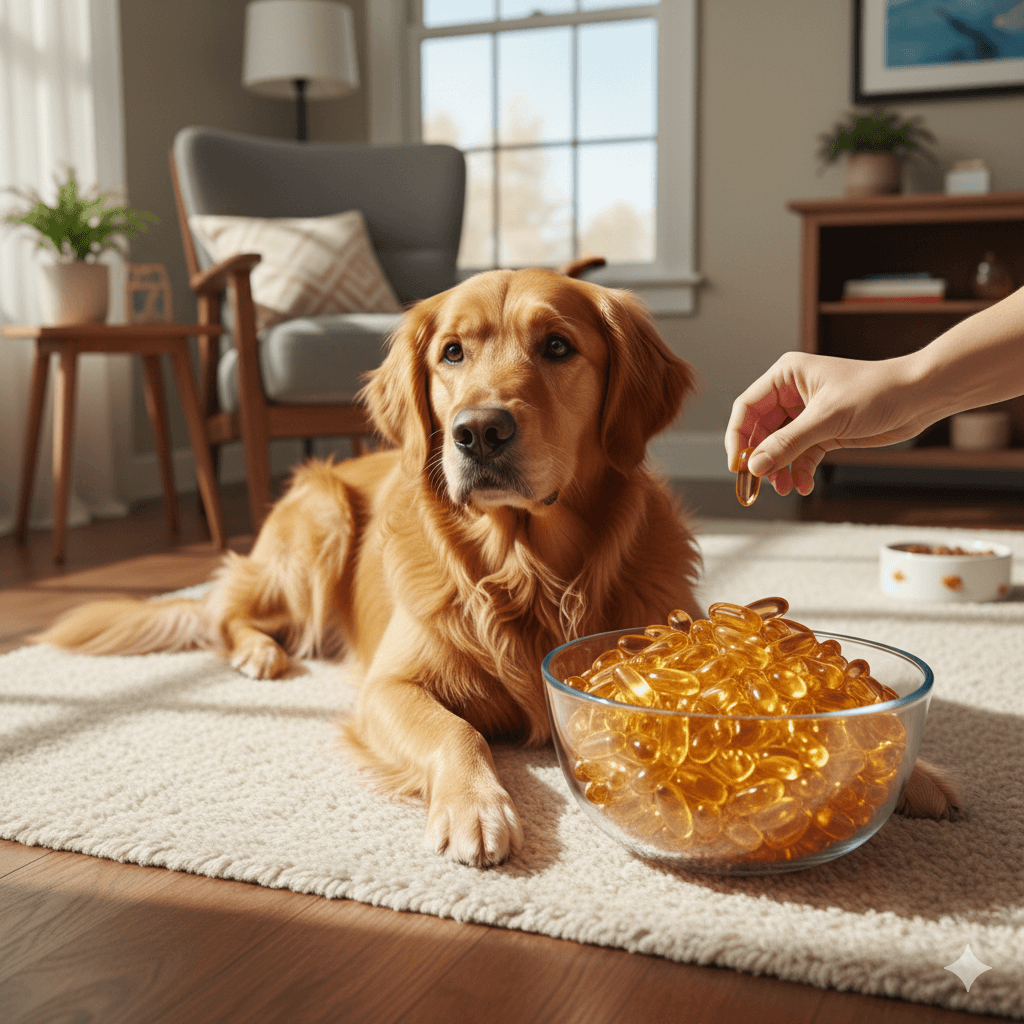Hypoallergenic Dog Breeds: Finding the Perfect Companion for Allergy Sufferers
For many dog lovers, allergies can feel like an insurmountable barrier to owning a furry friend. Sneezing, watery eyes, and skin irritation are just a few of the unpleasant symptoms that can arise when sensitive individuals interact with certain dogs. Fortunately, hypoallergenic dog breeds offer a solution. These breeds are known for producing fewer allergens, making them more compatible with allergy sufferers. While no dog is entirely hypoallergenic, some breeds are better suited for those with sensitivities. In this blog post, we’ll explore the best hypoallergenic dog breeds, their unique traits, and tips for managing allergies while enjoying the companionship of a canine companion.
Top Hypoallergenic Dog Breeds for Allergy Sufferers
If you’re considering adopting a hypoallergenic dog, it’s important to know which breeds are most suitable for allergy-prone households. Below is a list of popular hypoallergenic breeds, each with its own charm and characteristics.
Poodle (Standard, Miniature, Toy):
Poodles are intelligent, energetic, and come in three sizes to suit different lifestyles. Their curly, non-shedding coat makes them ideal for allergy sufferers.Bichon Frise:
This small, cheerful breed has a soft, curly coat that sheds minimally. Bichons are affectionate and great for families or apartment living.Portuguese Water Dog:
Known for their loyalty and love of water, Portuguese Water Dogs have a thick, curly coat that produces fewer allergens.Schnauzer (Miniature, Standard, Giant):
Schnauzers are versatile, protective, and come in various sizes. Their wiry coat sheds very little, reducing dander buildup.Basenji:
Often called the “barkless dog,” Basenjis have short, fine hair and groom themselves like cats, minimizing shedding and allergens.
These breeds not only cater to allergy sufferers but also bring joy and companionship with their unique personalities.
Tips for Managing Allergies with Hypoallergenic Dogs
Even with hypoallergenic breeds, taking extra steps to minimize allergens in your home can make cohabitation easier. Here are some practical tips to keep allergies at bay.
Regular Grooming:
Bathe and brush your dog frequently to remove loose hair and dander. Consider enlisting a professional groomer if needed.Clean Your Home Thoroughly:
Vacuum carpets, wash bedding, and dust surfaces regularly to reduce allergen accumulation.Use Air Purifiers:
Invest in high-quality air purifiers designed to trap pet dander and improve indoor air quality.Designate Pet-Free Zones:
Keep certain areas of your home, like bedrooms, off-limits to your dog to create allergen-free spaces.Wash Your Hands After Handling Your Dog:
This simple step helps prevent allergens from spreading to your face or other surfaces.
By incorporating these practices into your routine, you can enjoy life with your hypoallergenic dog while keeping allergies under control.
Check this guide 👉Dog Peanut Allergy Symptoms: Best 7 Expert Tips!
Check this guide 👉Dog Allergy Testing: Best 7 Expert Tips!
Check this guide 👉Symptoms of Beef Allergy in Dogs: Best 7 Health Tips!

Hypoallergenic Breeds | Non-Hypoallergenic Breeds |
|---|---|
Poodle (Standard, Miniature, Toy) | Labrador Retriever |
Bichon Frise | German Shepherd |
Portuguese Water Dog | Golden Retriever |
Schnauzer (Miniature, Standard) | Bulldog |
Basenji | Beagle |
Common Misconceptions About Hypoallergenic Dogs
Despite their growing popularity, there are several misconceptions about hypoallergenic dogs. Understanding the truth behind these myths can help set realistic expectations.
Myth: Hypoallergenic Dogs Don’t Shed at All:
While they shed minimally, hypoallergenic dogs still produce some dander and may require regular grooming.Myth: All Allergy Sufferers Can Tolerate Hypoallergenic Breeds:
Individual reactions vary, and some people may still experience symptoms even with hypoallergenic dogs.Myth: Hypoallergenic Breeds Are Easier to Care For:
Many hypoallergenic breeds require frequent grooming to maintain their coats, which can be time-consuming.Myth: Hypoallergenic Dogs Are Always Small:
Breeds like the Portuguese Water Dog and Standard Poodle prove that hypoallergenic dogs come in all sizes.Myth: Hypoallergenic Dogs Are Healthier:
These breeds are prone to their own health issues, so thorough research is essential before adoption.
Separating fact from fiction ensures you choose the right dog for your lifestyle and needs.
Choosing the Right Hypoallergenic Dog for Your Lifestyle
Selecting a hypoallergenic dog involves more than just considering allergies—it’s about finding a breed that fits your personality, space, and daily routine.
Consider Your Living Space:
Smaller breeds like Bichon Frises or Toy Poodles are perfect for apartments, while larger breeds like Standard Poodles need more room.Evaluate Energy Levels:
Active breeds like Portuguese Water Dogs thrive on exercise, while calmer breeds like Basenjis are better for laid-back households.Assess Grooming Needs:
Some hypoallergenic dogs, like Poodles, require extensive grooming, while others, like Basenjis, are lower maintenance.Think About Family Dynamics:
If you have children, consider breeds like the Miniature Schnauzer, known for being patient and playful with kids.Factor in Time Commitment:
Training and socializing any dog takes time, so ensure you’re ready for the commitment before bringing one home.
By aligning your choice with your lifestyle, you can enjoy a harmonious relationship with your hypoallergenic dog.
Benefits of Owning a Hypoallergenic Dog
Beyond reducing allergens, hypoallergenic dogs offer numerous advantages that make them appealing to a wide range of pet owners.
Less Mess Around the House:
Minimal shedding means fewer stray hairs on furniture, clothing, and floors.Improved Indoor Air Quality:
With fewer allergens circulating, homes with hypoallergenic dogs often feel fresher and cleaner.Strong Bonding Opportunities:
Regular grooming sessions provide opportunities to strengthen your connection with your dog.Versatility in Size and Temperament:
Hypoallergenic breeds come in various sizes and personalities, catering to diverse preferences.Suitable for Urban Living:
Many hypoallergenic breeds adapt well to city life, making them ideal for apartment dwellers.
These benefits make hypoallergenic dogs a practical and enjoyable choice for many households.
Challenges of Owning a Hypoallergenic Dog
While hypoallergenic dogs have many perks, they also come with challenges that potential owners should consider.
High Grooming Costs:
Frequent trips to the groomer can add up, especially for breeds with high-maintenance coats.Time-Consuming Care Routines:
Brushing, bathing, and trimming require consistent effort to keep your dog’s coat healthy.Potential Allergy Flare-Ups:
Even hypoallergenic dogs may trigger mild allergic reactions in sensitive individuals.Exercise Requirements:
Some hypoallergenic breeds, like Portuguese Water Dogs, need plenty of physical activity to stay happy.Initial Adoption Costs:
Popular hypoallergenic breeds can be expensive due to high demand and limited availability.
Being aware of these challenges helps you prepare for responsible pet ownership.
How to Prepare Your Home for a Hypoallergenic Dog
Welcoming a hypoallergenic dog into your home requires thoughtful preparation to ensure a smooth transition for both you and your new companion.
Invest in Quality Cleaning Supplies:
Stock up on pet-safe cleaning products, including vacuums designed for pet hair and dander.Create a Designated Sleeping Area:
Set up a cozy bed for your dog in a specific spot to limit allergens spreading throughout the house.Establish a Grooming Routine:
Schedule regular baths and brushing sessions to keep your dog’s coat in top condition.Update Your Furniture Choices:
Opt for easy-to-clean materials like leather or microfiber instead of fabrics that trap dander.Educate Family Members:
Teach everyone in the household how to interact with the dog and manage allergens effectively.
Proper preparation ensures a welcoming and comfortable environment for your hypoallergenic dog.
Frequently Asked Questions About Hypoallergenic Dog Breeds
Are hypoallergenic dogs completely allergen-free?
No, hypoallergenic dogs still produce allergens, but they tend to shed less and produce fewer allergens compared to other breeds.
Can I adopt a hypoallergenic dog if I live in a small apartment?
Yes, many hypoallergenic breeds, such as Bichon Frises and Toy Poodles, adapt well to smaller living spaces.
Do hypoallergenic dogs require more grooming?
Yes, their non-shedding coats often require regular brushing and professional grooming to stay healthy and manageable.
Are hypoallergenic dogs good for families with kids?
Many hypoallergenic breeds, like Miniature Schnauzers and Poodles, are great with children due to their friendly and patient nature.
How do I test my allergy tolerance before adopting a dog?
Spend time around the breed you’re interested in, either through fostering or visiting breeders, to see how your body reacts.
Finding Joy with Hypoallergenic Dog Breeds
Hypoallergenic dog breeds open the door to pet ownership for allergy sufferers, offering companionship without compromising comfort. By understanding the unique traits of these breeds, managing allergens effectively, and choosing a dog that aligns with your lifestyle, you can build a rewarding bond with your new furry friend. Remember, every dog deserves a loving home, and with careful planning, you can create a harmonious environment where both you and your hypoallergenic dog thrive.
Can You Give a Cat Too Much Fish Oil? Best 7 Expert Tips! – Discover safe dosages, risks of overuse, and how to boost your cat’s health with omega-3s responsibly.
Can You Give a Dog Too Much Fish Oil? Best 7 Expert Tips! – Discover safe dosages, risks of overuse, and how to boost your dog’s health with fish oil.
Noise Phobia in Cats: Best 7 Expert Tips! – Discover causes, symptoms, and solutions to help your cat cope with noise-related anxiety effectively.
Noise Phobia in Dogs: Best 7 Expert Tips! – Learn how to calm your dog during storms, fireworks, and loud noises with expert strategies. Reduce anxiety safely!




